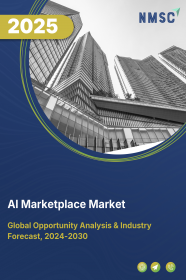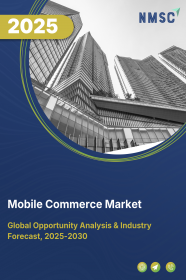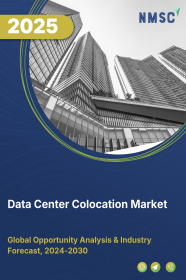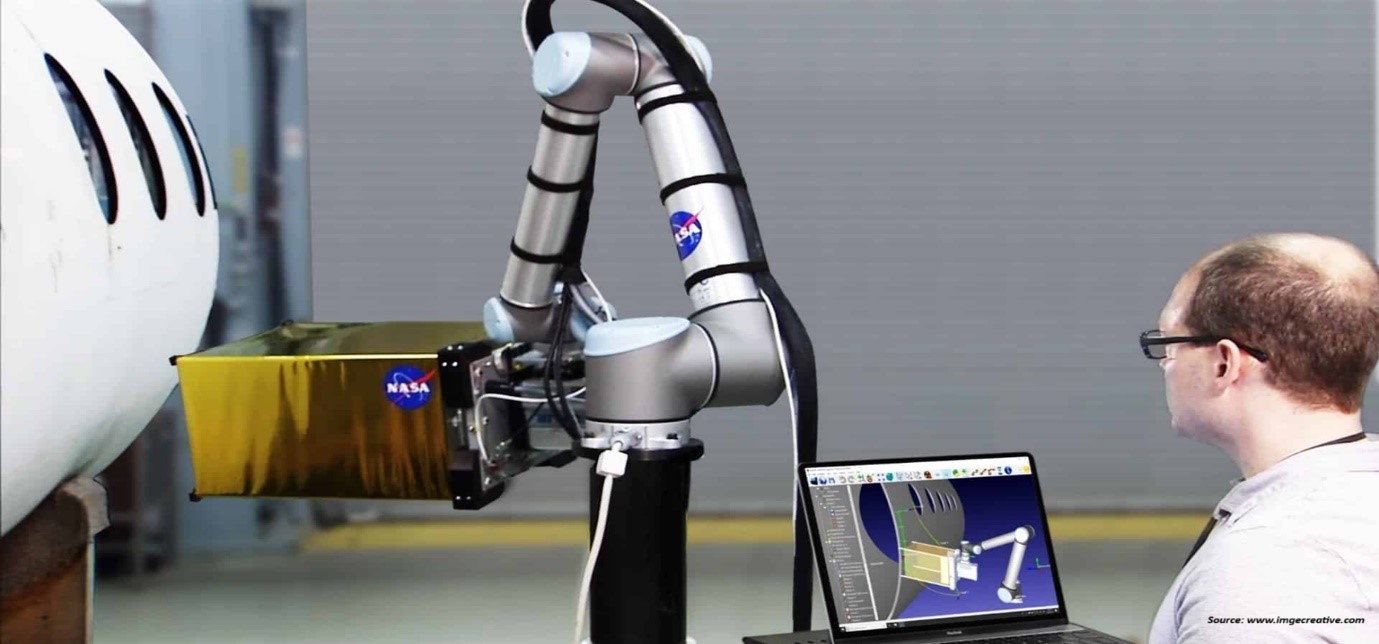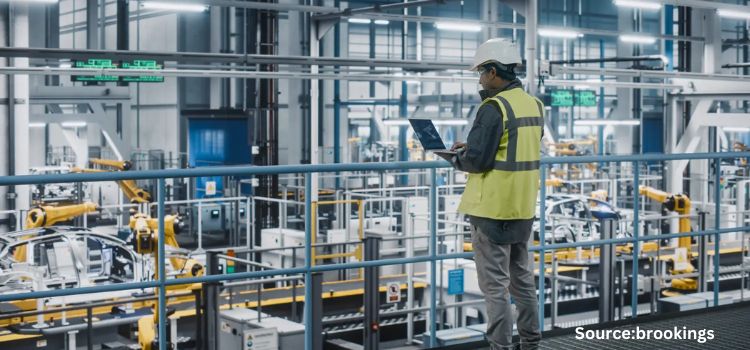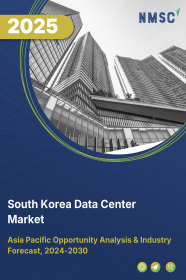
South Korea Data Center Market by Component (Hardware, Software, Service), by Type (Colocation, Hyperscale, Edge, Other Types), by Deployment Model (On-Premises, Cloud, Hybrid), by Tier Standard (Tier 1, Tier 2, Tier 3, Tier 4), by Energy Requirement & Power Density (Low Power, Medium Power, High Power), by Cooling Techniques (Air Cooling, Others), by Enterprise Size (Large Enterprises, Others), by End User (BFSI, Other End User)- Opportunity Analysis and Industry Forecast, 2024–2030
Industry: ICT & Media | Publish Date: 09-Apr-2025 | No of Pages: 173 | No. of Tables: 134 | No. of Figures: 79 | Format: PDF | Report Code : IC2440
US Tariff Impact on South Korea Data Center Market
Trump Tariffs Are Reshaping Global Business
South Korea Data Center Market Overview
The South Korea Data Center Market size was valued at USD 1.41 billion in 2023, and is predicted to reach USD 4.27 billion by 2030, at a CAGR of 17.1% from 2024 to 2030. The data center market, also referred to as the network infrastructure market, encompasses the comprehensive lifecycle of specialized infrastructure dedicated to hosting computing systems. This lifecycle spans from initial planning and construction to ongoing operation and maintenance. It comprises a diverse array of components, including servers, storage systems, and networking gear, that collectively offer services such as cloud computing and connectivity solutions.
Presently, the industry is witnessing widespread adoption of cloud services, accompanied by the emergence of edge computing aimed at reducing latency. Key trends shaping the market include a heightened focus on sustainability, increased concerns regarding cybersecurity, the integration of hybrid and multi-cloud approaches, and the growing influence of 5G networks. These trends underscore the industry's proactive response to meet the escalating demand for scalable, efficient, and secure data processing and storage solutions amidst the ongoing digital transformation. According to projections by the United States International Trade Commission, the data processing and storage market is anticipated to expand from USD 56 billion in 2020 to USD 90 billion by 2025.
Implementation of Government Initiative Propels the Market Growth
The South Korean government's ambitious plan to establish a 1GW market campus in Haenam, Jeollanam-do, significantly impacts the industry. This extensive project, featuring up to 25 40MW data centers, is designed to meet the escalating data demands driven by the country's rapid digitalization.
By situating the campus in a location rich in renewable energy, the initiative emphasizes sustainability and aligns with global environmental trends. The involvement of major investment companies, including Samsung C&T, LG CNS, and NH Investment & Securities, highlights robust financial support and signals potential industry growth. This strategic move reflects South Korea's commitment to advancing its network infrastructure, ensuring it remains at the forefront of technological innovation.
Corporate Expansion and AI Integration Boosts the South Korea Data Center Market Growth
Shin & Kim's launch of a new AI and data center in South Korea underscores the growing corporate interest in AI integration and data operations. This initiative offers comprehensive consulting services, focusing on AI-driven data integration and compliance. Led by experts in AI and data policy, the center provides critical legal and regulatory guidance, supporting clients in navigating the complexities of information and communication technology operations for sustainable growth.
Additionally, the expansion of prominent companies such as Equinix further drives market growth. Equinix's plan to launch a new hyperscale market center, SL4, in Seoul in Q1 2024, connected to SL1, aims to meet the rising demand for AI hardware.
The facility will offer enhanced power, specialized cooling, and networking capabilities, bolstering South Korea's digital ecosystem and facilitating access to a diverse range of businesses, cloud services, and AI partnerships through Platform Equinix.
High Initial Investment Hinders the South Korea Data Center Market Growth
The data center market faces significant hurdles, primarily due to the substantial initial investments required and stringent environmental regulations. Establishing and maintaining network infrastructure demands considerable upfront financial commitments, creating barriers for smaller enterprises and start-ups attempting to enter the market. Additionally, ongoing compliance with environmental standards necessitates continuous investment in energy-efficient technologies hinders the overall South Korea data center market growth.
Integration of Edge Computing Presents Lucrative Opportunity for Market Expansion
The adoption of edge computing operations offers promising prospects for the South Korea data center market expansion. By reducing latency and enabling real-time processing, edge computing supports applications such as the Internet of Things (IoT) and Augmented Reality (AR), easing the burden on centralized cloud data centers while providing scalability and flexibility.
This decentralized approach not only improves security by processing sensitive data locally but also aligns with evolving digital landscapes, opening diverse opportunities for network infrastructure providers. Recent investments in startups such as Armada indicate growing interest in edge computing solutions, reflecting a concerted effort to address connectivity challenges and bridge the digital divide.
Competitive Landscape
The key market players operating in the South Korea data center industry include Amazon Web Service Inc., IBM Corporation, Microsoft Corporation, Cisco Systems, Inc., Oracle Corporation, SAP SE, Hewlett Packard Enterprise Development LP, Equinix, Inc., Digital Realty Trust, Empyrion Digital, SC Zeus Data Centers Pte Ltd., Zenlayer, Inc., Digital Edge DC, Samsung C&T Corporation, Telehouse, and others.
South Korea Data Center Market Key Segments
By Component
-
Hardware
-
UPS
-
Generators
-
Transfer Switches
-
Cooling Systems
-
Computer Room Air Conditioning (CRAC)
-
Racks
-
Others
-
-
Software
-
Services
By Type
-
Colocation
-
Hyperscale
-
Edge
-
Other Types
By Deployment Model
-
On-Premises
-
Cloud
-
Hybrid
By Tier Standard
-
Tier 1
-
Tier 2
-
Tier 3
-
Tier 4
By Energy Requirement and Power Density
-
Low Power (Less than 20MW)
-
Medium Power (20-100MW)
-
High Power (100MW and More)
By Cooling Techniques
-
Air Cooling
-
Liquid Cooling
-
Dry Cooling
-
Immersion Cooling
-
Others
By Enterprise Size
-
Large Enterprises
-
Small and Medium Enterprises
By End User
-
BFSI
-
IT and Telecom
-
Government
-
Energy and Utilities
-
Other End Users
Key Players
-
Amazon Web Service Inc.
-
IBM Corporation
-
Microsoft Corporation
-
Cisco Systems, Inc.
-
Oracle Corporation
-
SAP SE
-
Hewlett Packard Enterprise Development LP
-
Equinix, Inc.
-
Digital Realty Trust
-
Empyrion Digital
-
SC Zeus Data Centers Pte Ltd.
-
Zenlayer, Inc.
-
Digital Edge DC
-
Samsung C&T Corporation
-
Telehouse
REPORT SCOPE AND SEGMENTATION:
|
Parameters |
Details |
|
Market Size in 2023 |
USD 1.41 Billion |
|
Revenue Forecast in 2030 |
USD 4.27 Billion |
|
Growth Rate |
CAGR of 17.1% from 2024 to 2030 |
|
Analysis Period |
2023–2030 |
|
Base Year Considered |
2023 |
|
Forecast Period |
2024–2030 |
|
Market Size Estimation |
Billion (USD) |
|
Growth Factors |
|
|
Companies Profiled |
15 |
|
Market Share |
Available for 10 companies |
|
Customization Scope |
Free customization (equivalent up to 80 working hours of analysts) after purchase. Addition or alteration to country, regional, and segment scope. |
|
Pricing and Purchase Options |
Avail customized purchase options to meet your exact research needs. |

















 Speak to Our Analyst
Speak to Our Analyst



